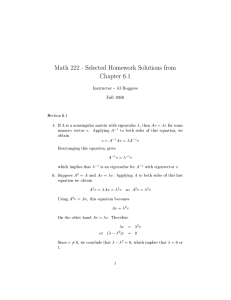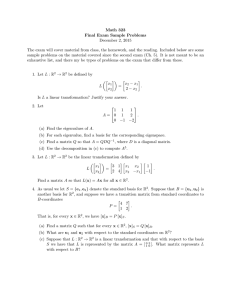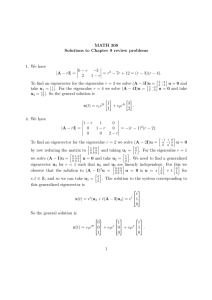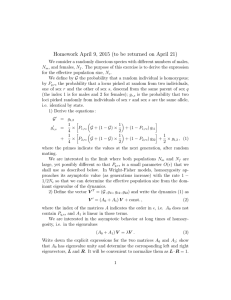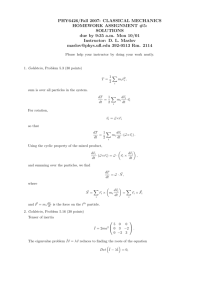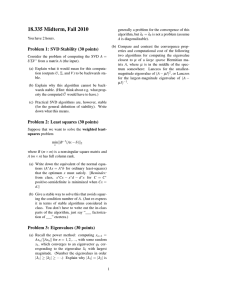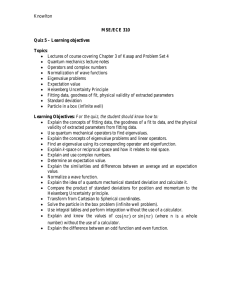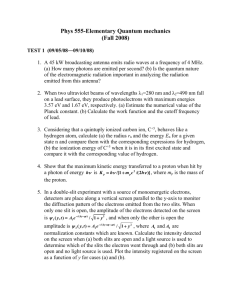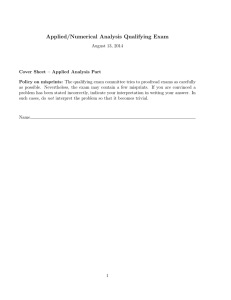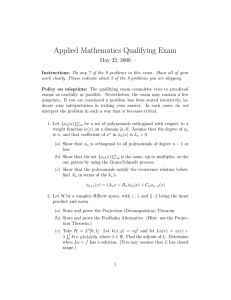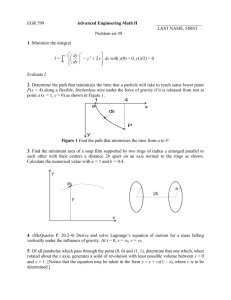Postulates of Quantum Mechanics
advertisement
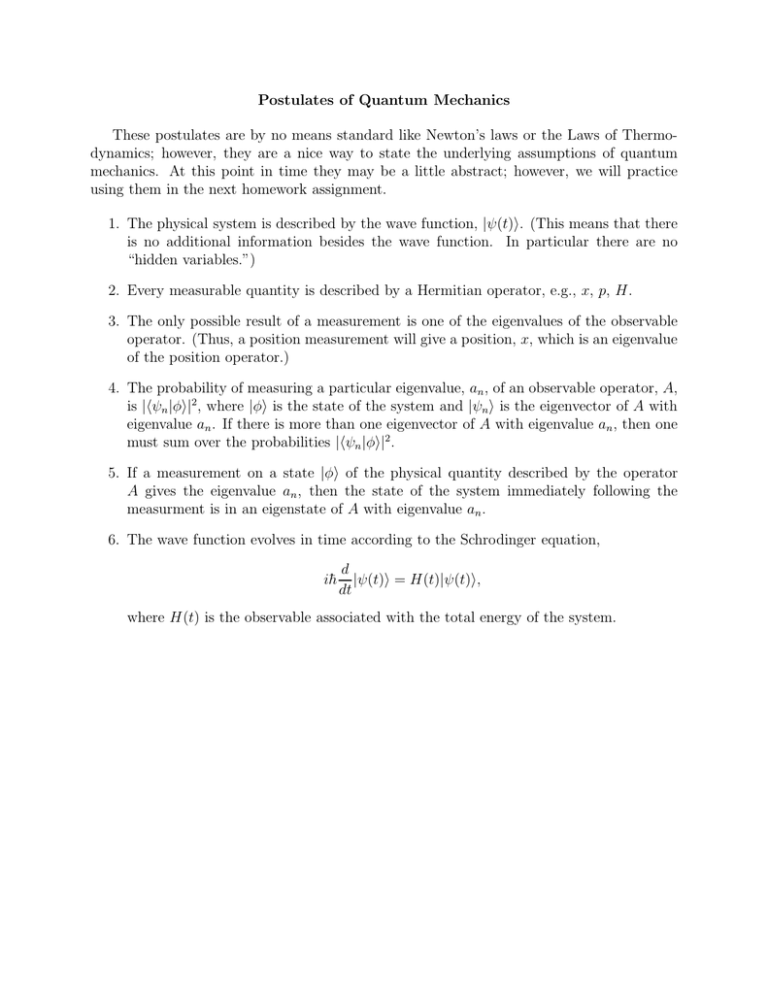
Postulates of Quantum Mechanics These postulates are by no means standard like Newton’s laws or the Laws of Thermodynamics; however, they are a nice way to state the underlying assumptions of quantum mechanics. At this point in time they may be a little abstract; however, we will practice using them in the next homework assignment. 1. The physical system is described by the wave function, |ψ(t)i. (This means that there is no additional information besides the wave function. In particular there are no “hidden variables.”) 2. Every measurable quantity is described by a Hermitian operator, e.g., x, p, H. 3. The only possible result of a measurement is one of the eigenvalues of the observable operator. (Thus, a position measurement will give a position, x, which is an eigenvalue of the position operator.) 4. The probability of measuring a particular eigenvalue, an , of an observable operator, A, is |hψn |φi|2, where |φi is the state of the system and |ψn i is the eigenvector of A with eigenvalue an . If there is more than one eigenvector of A with eigenvalue an , then one must sum over the probabilities |hψn |φi|2 . 5. If a measurement on a state |φi of the physical quantity described by the operator A gives the eigenvalue an , then the state of the system immediately following the measurment is in an eigenstate of A with eigenvalue an . 6. The wave function evolves in time according to the Schrodinger equation, ih̄ d |ψ(t)i = H(t)|ψ(t)i, dt where H(t) is the observable associated with the total energy of the system.
